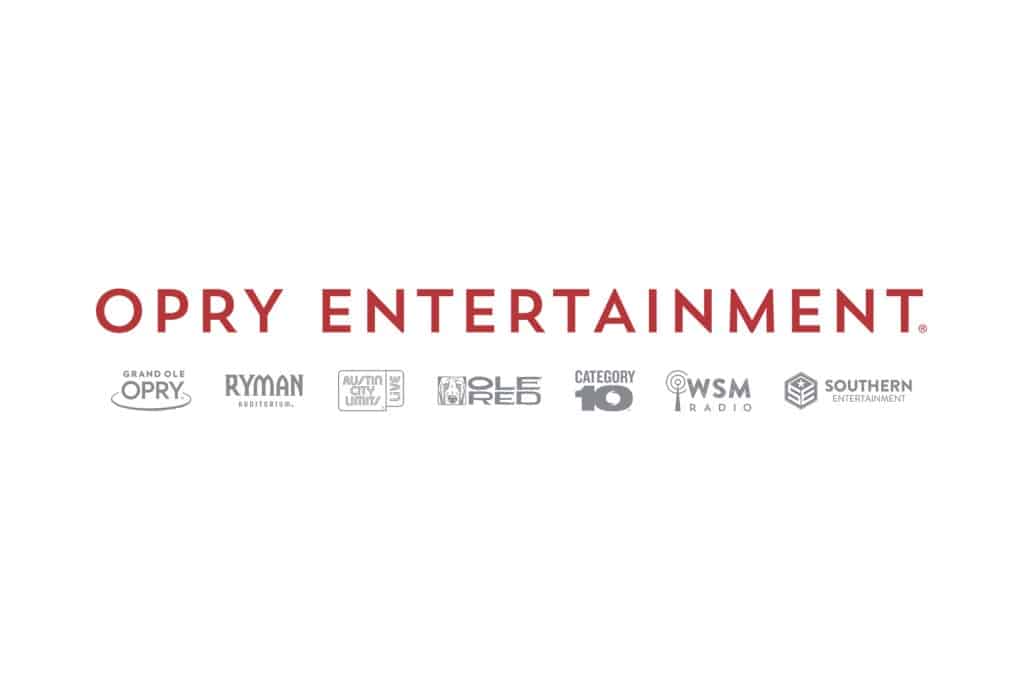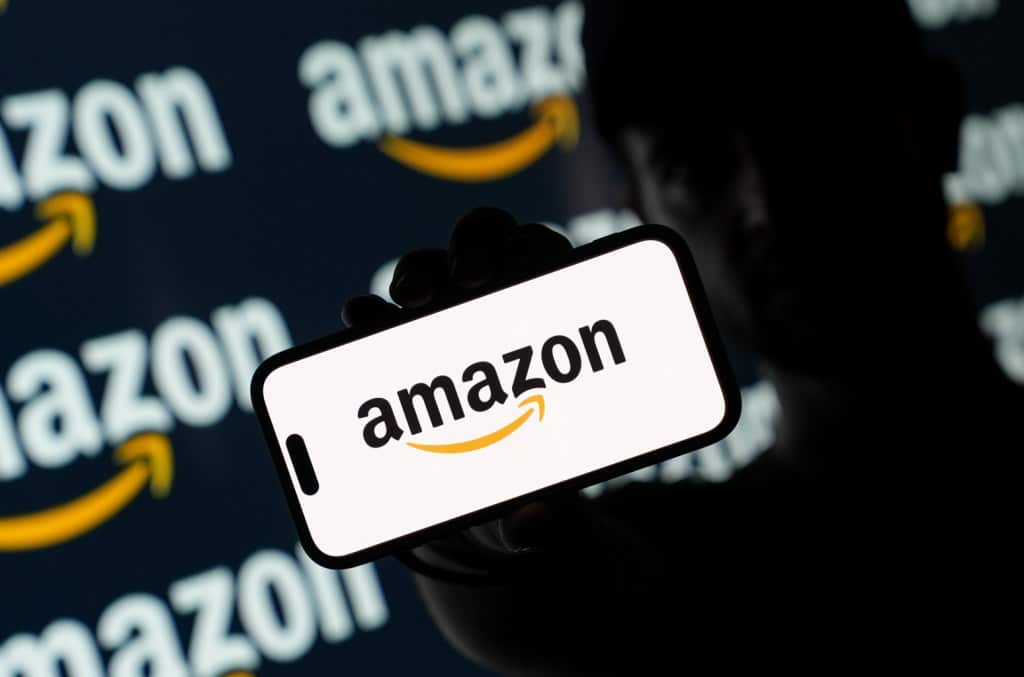Business News
Page: 45
ASCAP announced Wednesday (Jan. 15) that it will distribute $1 million in emergency relief to ASCAP songwriters or composers who have suffered the loss or damage of their primary residences or studios in the Los Angeles wildfires. The organization is also offering assistance to those who have been evacuated.
ASCAP will provide one-time stipends in the amount of $1,500 to ASCAP writer members in good standing as of Jan. 1, 2025, who do “not have a resignation notice pending.” The stipends will be awarded on a first-come, first-served basis while funds are available.
Please see the ASCAP website for more information or to apply for benefits. You can also check out our resource guide for music workers impacted by the fires here and find out how to help here.
“Our hearts go out to everyone impacted by the devastating Los Angeles fires. We are here to support our ASCAP members during troubled times, and we will ensure these funds reach ASCAP composers and songwriters in need,” said ASCAP CEO Elizabeth Matthews in a statement.
ASCAP president Paul Williams also wrote a message to members in need. His letter can be read below in full:
To my fellow ASCAP members,
My heart aches for the unimaginable loss and devastation that has struck our beloved city of Los Angeles. I want to say to all members and their families who have been impacted by the fires and are facing profound challenges, please take comfort that you are not alone. We are a community. As music creators, our community is built on a foundation of compassion, connection and a sense of purpose. That is our bedrock, where we always land, where we always begin.
Some of you have lost your homes, your studios, your instruments, those materials of your life which hold memories and meaning. What can never be lost is the spirit of this community and the enduring bond we share with each other. The outpouring of kindness, support, concern and generosity we have witnessed throughout this crisis is beyond inspiring. Proof, yet again, of an abundant supply of love.
As a community of songwriters, composers and music publishers, ASCAP has always harnessed our collective strength for the greater good. That is why ASCAP is setting up an emergency fund in the amount of $1 million for our members who have suffered from loss and damage to their homes and studios.
If you need help, please visit www.ascap.com/lafirerelief for more info.
Wishing you much love, hope and strength,
Paul
01/15/2025
From a potential TikTok ban to the upcoming Diddy trial to changes coming in streaming, AI, distribution and concert ticketing, there’s plenty to watch in 2025.
01/15/2025
Boiler Room, a longstanding event and streaming series, has been acquired by European festival organizer Superstruct Entertainment. A representative for the company declined to disclose the terms of the deal.
Boiler Room was previously owned by ticketing platform Dice, which acquired it in 2021. Dice will remain Boiler Room’s official ticketing partner.
A statement on the deal notes that Boiler Room’s team will remain responsible for leadership of the business under Superstruct, “and it will retain its identity with active support for theirdevelopment through Superstruct’s global resources and expertise.”
Trending on Billboard
A representative for Superstruct confirms that Boiler Room will continue generating revenue through brand partnerships (Boiler Room has had long-term deals with Pernod Ricard and Ballantine’s), along with ticketed events and its apparel brand. While Boiler Room videos regularly rack up millions of streams on YouTube, Boiler Room makes almost nothing from this YouTube content, as it doesn’t own any rights to the music.
“As we turn 15 and enter our next stage of growth, we’re excited to be partnering with Superstruct for this chapter,” Boiler Room founder Blaise Bellville said in a statement. “We feel in good company with their roster of brands, they offer us new opportunities to grow, whilst understanding the importance of staying true to the authenticity that, at its core, is what makes Boiler Room special.”
“We are proud to welcome the talented team at Boiler Room, who have managed to consistently grow the platform over the last fifteen years whilst maintaining a distinct cultural approach,” added Superstruct Entertainment CEO Roderik Schlösser. “This partnership perfectly aligns with Superstruct’s mission to celebrate and amplify cultures through creativity, collaboration, and live entertainment. Boiler Room is in the best position it has ever been and we are excited to support them in their promising future ahead.”
In June, Billboard reported that global investment firms KKR and CVC had agreed to acquire Superstruct Entertainment from Providence Equity Partners. Superstruct — which has a portfolio of more than 80 events including the electronic festivals DGTL, Mysteryland, Parookaville, Brunch Electronik, along with Sziget, one of the largest music festivals in Europe, and the world’s largest heavy metal festival, Germany’s Wacken Open Air — was founded in 2017 by Providence and James Barton, a former Live Nation executive who also founded the Liverpool-based night club Cream. The terms of that deal were not disclosed, though the Financial Times reported that Superstruct sold for around €1.3 billion ($1.39 billion).
YouTube and Google, together with Google.org, are contributing $15 million toward relief efforts aiding those impacted by the Los Angeles-area wildfires. The contribution will go to organizations including Emergency Network Los Angeles, American Red Cross and the Center for Disaster Recovery.
Explore
Explore
See latest videos, charts and news
See latest videos, charts and news
YouTube CEO Neal Mohan made the announcement in a blog post on Wednesday, Jan. 15.
“Los Angeles is the heart of entertainment and storytelling and has an impact on culture all overthe world. It’s also where many YouTube creators, artists, partners and our employees callhome. Like so many, we’ve been heartbroken by the devastation from the wildfires and want todo our part to support the community as it rebuilds,” Mohan wrote.
Trending on Billboard
He also outlined other efforts Google is making to help aid relief efforts.
“Together with Google.org, YouTube and Google are contributing $15 million to organizationsproviding immediate relief in LA, including Emergency Network Los Angeles, American RedCross and the Center for Disaster Philanthropy. And Google is providing accurate and timelyinformation to LA through products and services like Google Search, Google Maps and Waze.
“When it’s safe to reopen our offices in LA, we plan to offer YouTube production facilities toimpacted creators and artists as they begin to recover and rebuild their businesses. In thecoming months, we’ll also host a number of events to bring the YouTube creative communitytogether – making space to connect and share resources.
Mohan ended the blog post by saying, “On the long road ahead, we’ll continue to support recovery and rebuilding efforts alongside our partners across the industry. In moments like these, we see the power of communities coming together to support each other – and the strength and resilience of the YouTube community is like no other.”
Google and YouTube join numerous other organizations that are helping those who lives, homes and businesses have been impacted by the Los Angeles-area wildfires. The announcement follows recent announcements from companies including Amazon, which committed $10 million to relief efforts. Sony Group Corporation previously announced it would donate $5 million to wildfire relief efforts, while the Warner Music Group/Blavatnik Family Foundation Social Justice Fund pledged $1 million.
The wildfires began Jan. 7 in the Pacific Palisades area just outside of Los Angeles, and swiftly spread to areas including Runyon Canyon and Altadena. The wildfires have swept through at least 40,000 acres in the greater Los Angeles area and killed at least 25 people, according to NBC News. The Los Angeles area is still on high alert as of Wednesday, Jan. 15.
Britpop icons Pulp signed with Rough Trade Records. “Rough Trade have managed Pulp for over 30 years so it feels great to be finally on the label. We did it!” the band said in a statement. Pulp’s last release was the 2001 album We Love Life, released by Island Records, though the band has toured together in the intervening years. Pulp has released a total of seven studio albums, including 1995’s Different Class, which was certified four-times platinum by the BPI.
Maggie Rose, a 2025 Grammy nominee for best Americana album, signed with One Riot/Virgin. Her first release under the deal is a “stripped version” of “Under the Sun” with Charlotte Sands. Rose is managed by Austin Marshall and Narvel Blackstock at Starstruck and booked by Jonathan Levine and Matt Runner at Wasserman.
Trending on Billboard
Folk-country artist Evan Honer signed with Wasserman Music for booking representation ahead of his recently announced spring 2025 tour. Honer will play 36 dates across the U.S., starting on Feb. 23 in Little Rock, Ark.
Singer-songwriter Sam Ryder signed with mtheory for management. He will be represented by Lewis Allen and Derek Gridley. Ryder is gearing up to release his second album and will embark on a tour this year.
Grammy-nominated gospel artist William Murphy signed a distribution deal with Motown Gospel, which released his new single, “Double,” on Friday (Jan. 10).
Centricity Music signed singer-songwriter Rachel Purcell to an exclusive global recording and publishing deal. Under her maiden name, Wammack, Rachel previously pursued a country music career, with songs including “Damage”; her new deals with Centricity mark her foray into Contemporary Christian music. – Jessica Nicholson
Sony Music Nashville signed singer-songwriter and Georgia native Zach John King. King just released a new song, “Slow Down,” which he wrote with Thomas Archer, Kyle Fishman and Michael Tyler. Sony Music Nashville’s roster also features artists including Brooks & Dunn, Kane Brown, Luke Combs and Megan Moroney. – Jessica Nicholson
Guitarist/producer RJ Pasin launched his own record label, Isekai Records, and signed Baltimore-based artist Lindsay Chia to the imprint. The label, which was founded by Pasin alongside his managers Ewan McGregor and Jack Mangan, released Chia’s track “Ghost” on Jan. 1. On launch, Isekai released the track “Embrace It (Remix)” by Ndotz, Sexyy Red and Flo Milli, featuring Pasin on guitar.
Luke Dean, an emerging artist in the U.K. underground dance scene, signed with Enzo Siragusa‘s LOCUS imprint, which released his new EP Ready Set Go on Dec. 13.
Jeff Roberts Agency partnered with contemporary Christian singer-songwriter Claire Leslie for booking. Leslie is managed by Hyphen Media Group and signed with Capitol CMG. She released her debut single “Original” this summer and followed with songs including “Ceiling Fan” and “Passenger Seat.” – Jessica Nicholson
Nashville-based label Quartz Hill Records, led by Brown Sellers Brown partner Benny Brown, signed country-pop duo 2 Lane Summer to its roster. The duo, composed of Illinois native Joe Hanson and Mississippi-born Chris Ray, recently joined country trio Chapel Hart on their Hartfelt Family Christmas Tour. They’ve also released a new version of their song “Eyes That Ain’t Yours.” – Jessica Nicholson
Pollinate Music, a newly-launched label under Bell Partners Worldwide, signed rapper, singer-songwriter and producer Rakeem Miles, who is also known for the clothing brand Action Figure Miles.
Singer-songwriter McCoy Moore signed an exclusive booking and artist development deal with The Neal Agency, home to fellow artists including HARDY, Nate Smith, Morgan Wallen, Anne Wilson and Bailey Zimmerman. Moore is also signed with SMACK and Worktape Music for publishing and with the newly-launched TRACK mgmt’s Tracker Johnson for management. – Jessica Nicholson
The 2025 MusiCares Person of the Year event honoring the Grateful Dead is still set for Jan. 31 at the Los Angeles Convention Center, MusiCares announced on Tuesday (Jan. 14). The announcement, first reported in Variety, came one day after the Recording Academy announced that the 67th Grammy Awards were still on for Feb. 2.
Many had expected the Academy to reverse course and postpone the date of the Grammy telecast after all, but the announcement that the top Grammy Week event outside of the telecast is still on gives the impression that the academy is indeed planning to move forward with the show.
Trending on Billboard
“Your attendance at Persons of the Year and your ongoing generosity will support these continued vital efforts, helping those in urgent need and signaling to the world that this vibrant city is on its feet,” MusiCares said in a statement that it is emailing to Recording Academy members.
“At our upcoming Persons of the Year, we will make a special appeal for donations to support our wildfire relief efforts. We invite you to join us in spreading the word to your friends and family by sharing this link: www.musicares.org/FireRelief.”
In a joint statement on Monday (Jan. 13), Harvey Mason jr., CEO of both the Recording Academy and MusiCares, and Tammy Hurt, the chair of the academy’s board of trustees, suggested that the Feb. 2 show would combine the fund-raising goal and emotional appeals of a telethon with award presentations. “This year’s show, however, will carry a renewed sense of purpose: raising additional funds to support wildfire relief efforts and honoring the bravery and dedication of first responders who risk their lives to protect ours,” they said.
Even before the Grammys announced plans to go on with the show, Lucas Keller, president/founder of Milk & Honey Management, announced that he was canceling Milk & Honey’s popular Grammy party. “It would be tone deaf to celebrate and I hope all other companies will follow suit,” he wrote on his Instagram Story.
Many followed Keller’s lead. Just hours after the Recording Academy announced that it planned to go ahead with the telecast, Universal Music Group (UMG) announced it was canceling all of the company’s Grammy-related events, including its artist showcase and after-Grammy party, and will instead “redirect the resources that would have been used for those events to assist those affected by the wildfires.” Within 24 hours, Warner Music Group and Sony Music Entertainment had also canceled their Grammy Week events. And on Tuesday (Jan. 14), BMG announced that it too was canceling its annual pre-Grammy party.
Additionally, many executives not based in Los Angeles expressed concern about taking up hotel rooms that may be needed by evacuees and planned not to attend.
The Recording Academy has yet to announce the host of this year’s Grammys. The announcement was expected last week but has been delayed to avoid stepping on the main news about whether the show was going to proceed or not. The announcement is expected soon.
MusiCares conveyed the news in an email to members on Tuesday (Jan. 14). It appears in full below.
“We hope you and your loved ones are safe. We’re reaching out to assure you that the MusiCares Persons of the Year will take place as planned on Friday, January 31, 2025, at the Los Angeles Convention Center.
“As the devastation unfolds from the wildfires in greater Los Angeles, MusiCares is committed to supporting the impacted music community. When the crisis began, we launched our Fire Relief Effort with a $1 million contribution from the Recording Academy and MusiCares.
“Your attendance at Persons of the Year and your ongoing generosity will support these continued vital efforts, helping those in urgent need and signaling to the world that this vibrant city is on its feet.
“Now more than ever, our mission is critical. For more than three decades, MusiCares has been a steadfast partner to the music industry during times of need, offering aid in response to a variety of disasters. From the Las Vegas Route 91 shooting and the COVID-19 pandemic to Superstorm Sandy, Hurricane Katrina, Hurricane Helene, the California and Maui wildfires. MusiCares is here to help—no matter the size or scope of the crisis.
“At our upcoming Persons of the Year, we will make a special appeal for donations to support our wildfire relief efforts. We invite you to join us in spreading the word to your friends and family by sharing this link: www.musicares.org/FireRelief
“Thank you for your support during this crucial time. Please don’t hesitate to reach out with any questions. We look forward to coming together for this important cause.
Best regards,
MusiCares
As devastating wildfires continue to ravage Los Angeles County, a number of music businesses have stepped up to support relief efforts. Whether it’s multi-million dollar donations, offers to replace destroyed musical instruments and gear, or providing free studio time to affected musicians, it’s clear the industry is coming together to support both music professionals and the greater public who have suffered devastating losses.
Billboard has compiled a list of some of the music companies taking part in relief efforts around L.A. We will continue to update this list as more announcements are made.
If you’re a musician or music industry worker impacted by the fires, please see Billboard’s list of entertainment non-profits offering financial and other assistance. You can also check out a list of ways to help here.
Amazon Music
Amazon’s entertainment division, which includes Amazon Music, Prime Video and Amazon MGM Studios, along with Ring and Whole Foods, has committed $10 million to L.A. wildfire relief efforts. According to a company blog post, the money “will go directly to national and local disaster and response organizations.” This includes the American Red Cross of Southern California, FireAid, MusiCares, World Central Kitchen, the Los Angeles Fire Department Foundation and more.
Sony Group Corporation
Sony has pledged $5 million toward supporting relief efforts related to the Los Angeles-area fires. The sum will be allocated to organizations supporting first responders, community relief and rebuilding efforts, as well as employee assistance programs.
Sony Music Group also said on Tuesday (Jan. 14) tht it would redirect funds allocated to its now-canceled Grammy Week party to local relief efforts.
Warner Music Group/Blavatnik Family Foundation Social Justice Fund
On Sunday (Jan. 12), the Warner Music Group’s social justice fund announced a pledge of $1 million to support fire relief and rebuilding efforts in Los Angeles. The funds will be directed to organizations assisting the Los Angeles community, local first responders and individuals in the music industry affected by the disaster. Recipients of the pledge include the California Community Foundation, the Los Angeles Fire Department Foundation, Project HOPE and MusiCares, among others, according to a press release.
WMG added on Monday (Jan. 13) that it would not be holding its annual Grammy party and will instead redirect funds to efforts to combat the wildfires and help those affected.
Universal Music Group
The label giant announced that it would cancel all of the company’s Grammy-related events, including its artist showcase and after-Grammy party, and instead “redirect the resources that would have been used for those events to assist those affected by the wildfires.”
Good Boy Records
Good Boy Records, a label founded by producer Elie Rizk, is opening its doors for free to any musician who has lost their recording space in the L.A. fires. Click here for a public calendar and to book time at the company’s studio in Studio City.
Homemade Projects
Homemade Projects, a record label, influencer management firm, merchandiser and digital marketing agency, announced via Instagram after the fires took hold that anyone in the L.A. area in need of clothing could contact the company and be provided with new tees, hoodies, sweats and hats from its warehouse.
Guitar Center
The Guitar Center Music Foundation is offering support to L.A.-area musicians and music programs affected by the devastating fires, as announced on its website. Eligible individuals can apply for a one-time grant to help replace instruments lost or damaged in the fires. Applications are open through Feb. 28. To apply, visit the link here.
Discogs
The record-collecting marketplace announced it will donate its sales revenue on Friday (Jan. 17) directly to MusiCares, The Recording Academy’s non-profit arm, which is offering financial assistance to affected music industry workers.

Opry Entertainment Group (OEG) has acquired a majority interest in the North Carolina-based live events, hospitality and production company Southern Entertainment, whose portfolio of owned or promoted live music events includes the country music festivals Carolina Country Music Fest (Myrtle Beach, S.C.), Barefoot Country Music Fest (Wildwood, N.J.), Lovin Life Music Fest (Charlotte, N.C.), Greenville Country Music Fest (Greenville, S.C.) and the upcoming Field & Stream Outdoor Music Fest, which will launch this year in Winnsboro, S.C.
Founded by Bob Durkin and Rob Pedlow in 2015, Southern Entertainment has produced more than 200 events in the United States.
Trending on Billboard
“We’ve always looked at the festival business as a significant opportunity for us given the sort of shared focus on live events and venues that we do,” Patrick Moore, CEO of Opry Entertainment Group, tells Billboard. “Rob and Bob are 10 years into this business and they’ve created distinctive experiences for fans and for artists in really exciting destination markets.”
Says Durkin, “[OEG] had similar synergies when it came to growth, when it came to customer service, hospitality, the things that are what we think drive the business.”
For OEG, a subsidiary of Ryman Hospitality Properties, the new investment marks an additional expansion of its footprint in the live music space. OEG’s portfolio includes not only iconic country music mainstay the Grand Ole Opry (the Opry celebrates its milestone 100-year anniversary in 2025) and the Ryman Auditorium, but also WSM Radio and newer additions including the Blake Shelton-inspired Ole Red brand and the Luke Combs-inspired venue, bar and restaurant Category 10. In 2022, Ryman Hospitality Properties completed a deal that includes iconic Austin, Tex., venue ACL Live at Moody Theater. OEG is also a minority, non-controlling investor in the country lifestyle brand Whiskey Riff.
Moore declined to provide the specific percentage of OEG’s majority interest in Southern Entertainment, but notes that the combination “enables both businesses to tap into markets and demographics and communities that we can’t do individually.”
One of the biggest priorities for Southern Entertainment this year is the inaugural Field & Stream Music Fest, which is slated for Oct. 3-5 with headliners including Eric Church and Miranda Lambert; the festival is co-produced by Field & Stream alongside key investors Church, Morgan Wallen and Southern Entertainment.
“Field & Stream is something we are very excited about because it gives a unique feel for a music festival,” says Durkin. “You celebrate music and community with your fellow people and this one’s going to be in the middle of the woods and we have to take advantage of everything outdoors. There’ll be fishing aspects to it, hiking, mountain biking, so it’s really unique. What’s exciting, too, is that it is driven by artists. Eric Church, he’s from [North] Carolina. And the Field & Stream Magazine and the brand is iconic. So I think we can only help each other.”
Crucially, the investment will align the two companies’ shared focus on artist development and spotlighting emerging artists. “We have the same kind of general vision strategy and approach, and that goes for emerging artists and artist development,” says Moore. Following the deal, Southern Entertainment will integrate OEG’s artist development programs into its flagship country music festivals, where many Opry members and Opry NextStage artists have performed in recent years. The Opry’s NextStage Class of 2024 features artists 49 Winchester, Anne Wilson, Charles Wesley Godwin, Chase Matthew, Ella Langley, Wyatt Flores, Flatland Cavalry, Josh Ross and Madeline Edwards. Flores, Flatland Cavalry and Ross are among the current Opry NextStage artists who have played at Southern Entertainment festivals.
Amazon is committing $10 million to L.A. wildlife relief efforts, the company announced on Monday (Jan. 13). The donation comes from Amazon’s entertainment division (Amazon Music, Prime Video and Amazon MGM Studios), along with Ring and Whole Foods Market.
According to a blog post on the Amazon website, the money “will go directly to national and local disaster and response organizations including the American Red Cross of Southern California, FireAid, MusiCares Fire Relief Effort, World Central Kitchen, Los Angeles Fire Department Foundation, Habitat for Los Angeles Wildfire Fund, and Los Angeles Chamber of Commerce Small Business Relief/Recovery Fund, among others, as well as in-kind advertising opportunities on Prime Video for nonprofits supporting LA fire relief efforts.”
Amazon has already donated more than 145,000 essential items to 17 local organizations working on the wildfire response, including fire stations, community fire brigades, the American Red Cross, Salvation Army, Los Angeles Unified School District (LAUSD), Dream Center and multiple YMCA chapters. This includes 30,000 items to the Los Angeles County Salvation Army, 5,000 shelter items, more than 300 wildfire response items, gift cards to LAUSD to support teachers who lost their classrooms in the fires and 1,000 items to support fire stations, among many others.
The company says it’s also “deploying” its AWS cloud technology, including drone support, “to help emergency responders better understand and react to the evolving wildfire situation.” Additionally, it says it’s “curating opportunities” for its Southern California employees to volunteer with organizations including the LA Regional Food Bank and LAUSD.
Amazon’s announcement follows similar commitments made by companies including Sony Group Corporation, which on Monday said it would donate $5 million to wildfire relief efforts, as well as the Warner Music Group/Blavatnik Family Foundation Social Justice Fund, which pledged $1 million.
Just hours after the Recording Academy announced that it plans to go ahead with the 67th annual Grammy Awards telecast on Feb. 2 as scheduled despite the wildfires that have devastated parts of Los Angeles in the past week, Universal Music Group (UMG) announced it is canceling all of the company’s Grammy-related events, including its artist showcase and after-Grammy party, and will instead “redirect the resources that would have been used for those events to assist those affected by the wildfires.”
“Our deepest gratitude goes to the first responders and emergency personnel, who continue to perform heroically,” said the company in a statement. “L.A. is home to so many of us. We are committed to helping and supporting the music community, our artists, our teams and the people of Los Angeles get through this horrific episode.”
Trending on Billboard
The Recording Academy made a similar statement of concern even as it came to a different conclusion.
“Our hearts go out to everyone affected by the devastating wildfires in Los Angeles,” Recording Academy and MusiCares CEO Harvey Mason jr. and Tammy Hurt, chair of the board of trustees, said in a statement released earlier today. “This city is our home, and we mourn the loss of life and destruction that have come to it in recent days.
“In close coordination with local authorities to ensure public safety and responsible use of area resources, the 67th Grammy Awards telecast on CBS on Feb. 2 will proceed as planned,” they continued. “This year’s show, however, will carry a renewed sense of purpose: raising additional funds to support wildfire relief efforts and honoring the bravery and dedication of first responders who risk their lives to protect ours.”
Those local authorities reportedly include the office of Mayor Karen Bass, public safety agencies and fire marshals.
The Recording Academy’s plan is to go ahead with the telecast. It has made no decision about other Grammy Week events, such as the MusiCares Person of the Year event (which this year is set to honor the Grateful Dead) and the Recording Academy’s Special Merit Awards.
A major ancillary Grammy event, the Milk & Honey party, was canceled on Sunday (Jan. 12) with a pointed message on founder Lucas Keller‘s Instagram Story. “I regret that we will be canceling our annual award season pre-Grammy event in partnership with Reservoir and others. … It would be tone deaf to celebrate and I hope all other companies will follow suit,” he wrote. “Don’t come to town for the Grammy’s and take up hotels that people need desperately. Release your hotel blocks or donate them. In the meantime, if you can, please give money to MusiCares at this link to support wildlife relief. Everything counts.”The Recording Academy and MusiCares launched the Los Angeles Fire Relief Effort last week with an initial $1 million donation to support music creatives and professionals. “Thanks to additional contributions, we have already distributed over $2 million in emergency aid to those most in need — and we remain steadfast in our commitment to providing ongoing assistance,” Mason and Hurt said in their statement.

 State Champ Radio
State Champ Radio 








